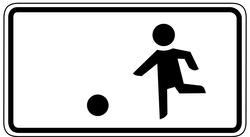 Search engines monitor how people use their services. The data is used to assess internet usage and to target adverts or sponsored links.
Search engines monitor how people use their services. The data is used to assess internet usage and to target adverts or sponsored links.
A report from their gargantuan databases could list every query that was ever entered into their website from your computer. A timeline could note which link you selected and how long you remained on that site.
More pertinently, it will record which webpage caused you to click on a site and which sent you away again. If it is the same page, then it will incur a high bounce rate. This is still true, even if you followed an external link given in the content.
If someone leaves their computer idling on a single area of your website, while they go away for a reasonable period of time, then you will incur a high bounce rate. Their search 'session' will have ended, thus sending a signal back to the cookie that you are not there.
There is no industry standard for the amount of time needed for a session to end. The average is thirty minutes. It's believed that anyone could read a whole webpage in that time. Therefore if you have not moved on further into the website, then the landing page has failed to entice you further. This is a mark against it which is factored into your overall rank.
Have a look at the top of your browser. How many tabs/windows do you have open? Have they been there longer than half an hour? If so, then I have a message for you from the person who owns the site:
'Thank you very much for visiting. I love the hits that you've given me. But next time, could you please click elsewhere on my site, then exit properly before going away? Thank you in advance.'
In effect, you just threw them the ball and, while they were trying to talk to win the game, you simply walked away. The search engine's cookie, silently acting as judge and jury, marked them down as a loser.
On an entirely related note, I would be very grateful if you'd just click on my profile after reading this. Then perhaps have a look at some of my other articles? Yes, the above note was from me too.


 Throw a ball against a wall and it will come back to you. How quickly it does that is called its bounce rate. At least it is when the ball is a query and the person doing the throwing is a search engine.
Throw a ball against a wall and it will come back to you. How quickly it does that is called its bounce rate. At least it is when the ball is a query and the person doing the throwing is a search engine.


 Search engines monitor how people use their services. The data is used to assess internet usage and to target adverts or sponsored links.
Search engines monitor how people use their services. The data is used to assess internet usage and to target adverts or sponsored links.


 Developers of search engines are not stupid enough to tell the internet precisely how they determine high ranking SERPs. If they did that, then unscrupulous programmers would simply design some kind of bot to hook the algorithms. Potential readers would enter their queries and end up on unsuitable pages. Then the world would possibly end.
Developers of search engines are not stupid enough to tell the internet precisely how they determine high ranking SERPs. If they did that, then unscrupulous programmers would simply design some kind of bot to hook the algorithms. Potential readers would enter their queries and end up on unsuitable pages. Then the world would possibly end.





 St Tydecho's Churches in West Waleson 09/03/2014
St Tydecho's Churches in West Waleson 09/03/2014
 Goodies for an Outlander Premiere Partyon 03/06/2015
Goodies for an Outlander Premiere Partyon 03/06/2015
 Holocaust Memorial Day Interview with Rainer Höss, Grandson of Rudolf Architect of Auschwitzon 01/24/2015
Holocaust Memorial Day Interview with Rainer Höss, Grandson of Rudolf Architect of Auschwitzon 01/24/2015
 Romantic Valentine Gifts for an Outlander Fanon 01/16/2015
Romantic Valentine Gifts for an Outlander Fanon 01/16/2015



Comments
Yay! Glad that you liked it. I totally misunderstood bounce rate for ages too. I had it mixed up with exit rate.
This is great information. I thought I knew what bounce rate was, but I didn't really understand it. THANKS.
Wow, you're making me blush. <3 I'm glad to have explained it well enough for you. :)
Thank you for the tip, Biztable. I totally agree! The recommendation is to get to at least below 50%, preferably lower.
If your webpage has a bounce rate of over 70%, it's time to get some editing done with regards to content, design, page loading time, etc. A high bounce rate sends a negative signal to Google that can lead to lower search engine rankings.
Hi Ember! I think the world would greatly appreciate you writing articles. I've never known anyone who could make biology and the medical world sound as interesting as you can.
I'm just going to leave this here: http://wizzley.com/accounts/register/...
I will not likely ever be an internet blogger but I'll certainly be prepared if that ever happens...lookit all these nifty tricks of the trade you keep teaching me :D (its not going to happen. >.>)